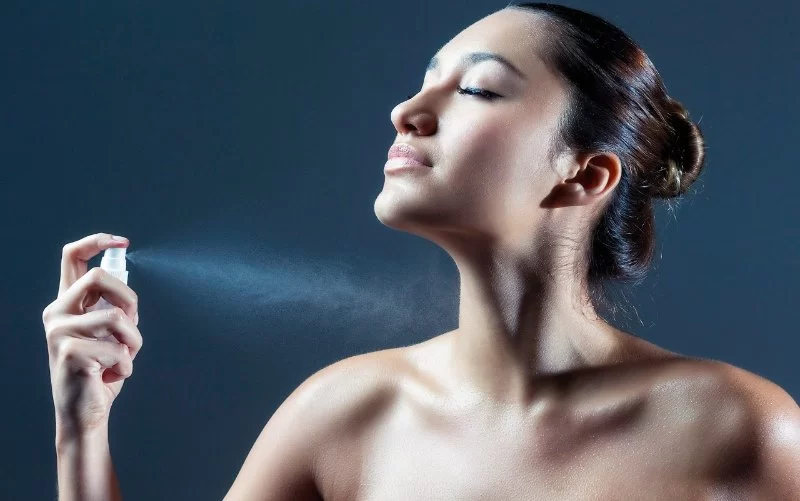- understanding-the-ph-scale—how-it-relates-to-body-spray
- ideal-ph-range-for-body-sprays—what-your-skin-needs
- skin-health-and-ph-balance—why-it-matters-in-personal-care
- common-mistakes-and-misconceptions—when-body-sprays-go-wrong
- real-world-insights-and-case-examples—scent-reactions-you-might-face
- explore-body-spray-science-with-scent-snob—make-smarter-fragrance-choices
1. Understanding the pH Scale — How It Relates to Body Spray
When people ask, “What is the pH scale for body spray?” they’re tapping into a critical factor in skincare and fragrance design. The pH scale ranges from 0 (very acidic) to 14 (very alkaline), with 7 being neutral. Human skin naturally sits around 4.7–5.5, slightly acidic — and good body sprays are formulated to respect that.
1.1 Why pH Affects Performance and Comfort
pH can influence how a body spray feels, how it reacts with your skin, and even how the fragrance develops. If the pH is too high or too low, it may cause irritation, alter the scent, or disrupt your skin barrier. The science of formulating a good body spray is more than just mixing nice-smelling oils — it’s a precise chemical balance.
2. Ideal pH Range for Body Sprays — What Your Skin Needs
Most high-quality body sprays fall in the pH range of 4.5 to 6.0 — close enough to natural skin acidity to prevent disruption. This range ensures that the product won’t encourage dryness, overproduction of oil, or microbial imbalance.
2.1 Alcohol-Based Sprays and Their pH
Many body sprays use alcohol as a carrier for fragrance. Ethanol is naturally neutral or slightly acidic when diluted. When properly formulated, alcohol-based sprays land in the safe zone for skin pH. However, overuse can still dry the skin due to evaporation — not pH imbalance — so moderation is key.
2.2 Water-Based or Oil-Based Sprays
Non-alcohol body sprays use water or carrier oils like jojoba or coconut. These often require more delicate balancing of pH, since water can drift toward neutral or alkaline without the right preservatives and buffers. Watch out for cheap products that skip this step — your skin will notice.
3. Skin Health and pH Balance — Why It Matters in Personal Care
Your skin’s acid mantle — the thin film on the surface — protects against bacteria, pollution, and dehydration. When the pH is disrupted, that shield weakens. Body sprays with the wrong pH can cause breakouts, redness, or even trigger conditions like eczema in sensitive individuals.
3.1 The Role of Fragrance Chemistry
Certain essential oils and synthetic fragrance molecules can shift a formula’s pH. A brand that invests in pH balancing will test and buffer their ingredients to protect your skin. That’s why reading ingredient lists or trusting well-reviewed names matters — especially for those with sensitive or reactive skin types.
4. Common Mistakes and Misconceptions — When Body Sprays Go Wrong
Some assume “natural” means safe, or that strong scent equals effectiveness. But an overly acidic body spray — even one made with essential oils — can sting or burn. Conversely, alkaline sprays can feel sticky or leave skin dry and dull.
4.1 Misting on Broken or Damp Skin
Applying body spray right after a hot shower or on freshly shaved skin can intensify negative reactions. Heat and open pores make skin more sensitive to pH fluctuations. If a product causes discomfort, it may not be your skin — it may be a pH problem.
4.2 Using Sprays on Clothes vs. Skin
Some sprays are meant for fabric and may have a neutral or high pH. Using them on your body can lead to irritation. Always check labels and product intention before applying directly to your skin.
5. Real-World Insights and Case Examples — Scent Reactions You Might Face
On a skincare forum, one user shared that their new “fresh linen” body spray caused itching and redness within minutes. After testing, it was revealed the spray had a pH of 8 — significantly higher than healthy skin. Another user found that their favorite vanilla scent, which felt soothing in winter, caused breakouts in summer. Turns out, their sweat was amplifying the pH impact of the spray during heat.
These examples highlight why understanding the pH scale for body spray isn’t just science — it’s self-care. Products interact differently with every body, and sometimes it takes trial and awareness to find the right match.
6. Explore Body Spray Science with Scent Snob — Make Smarter Fragrance Choices
If you’re passionate about scent and skincare harmony, Scent Snob is your go-to destination. Their team reviews and curates body sprays not just by scent but by formulation quality — including pH awareness. You’ll find guides that help you pick a fragrance that respects your skin, mood, and chemistry all at once.
Next time you mist on your favorite body spray, know that what feels good is more than fragrance — it’s also pH chemistry working with your body, not against it.


0 comments